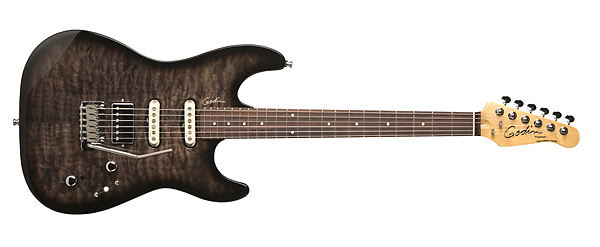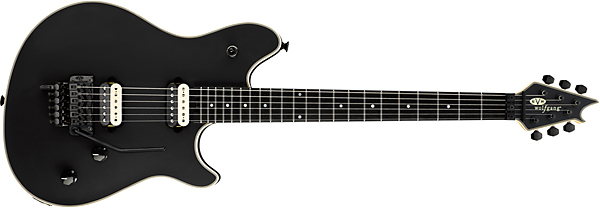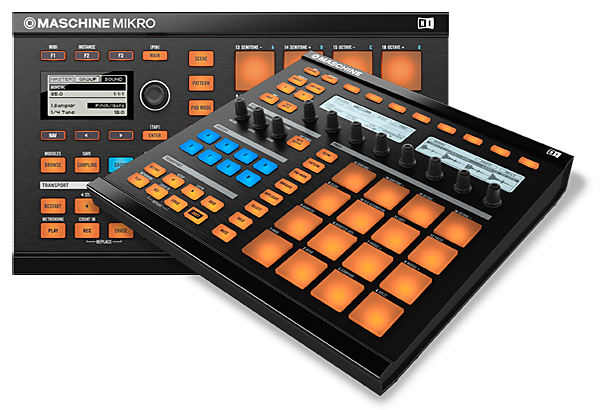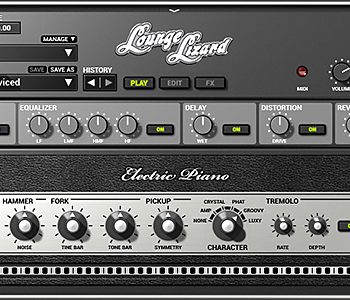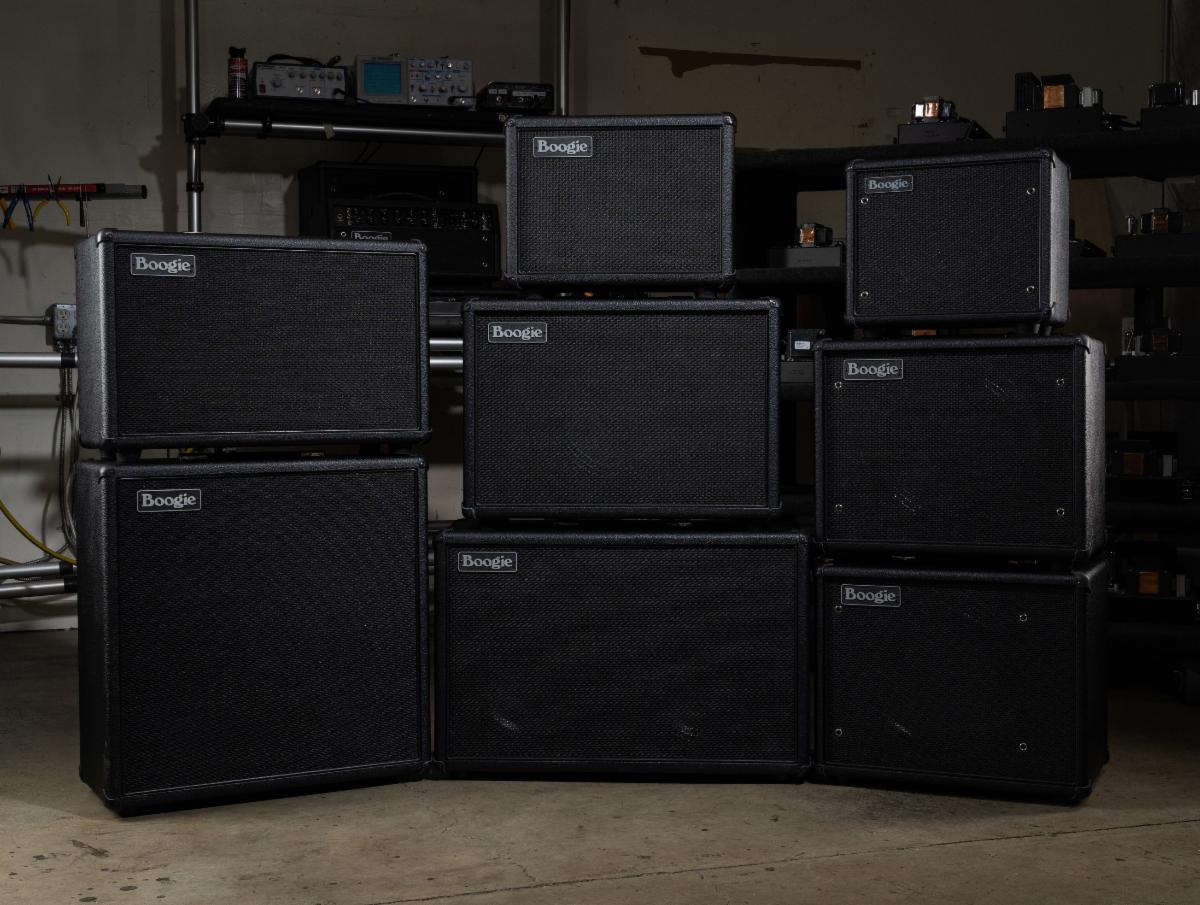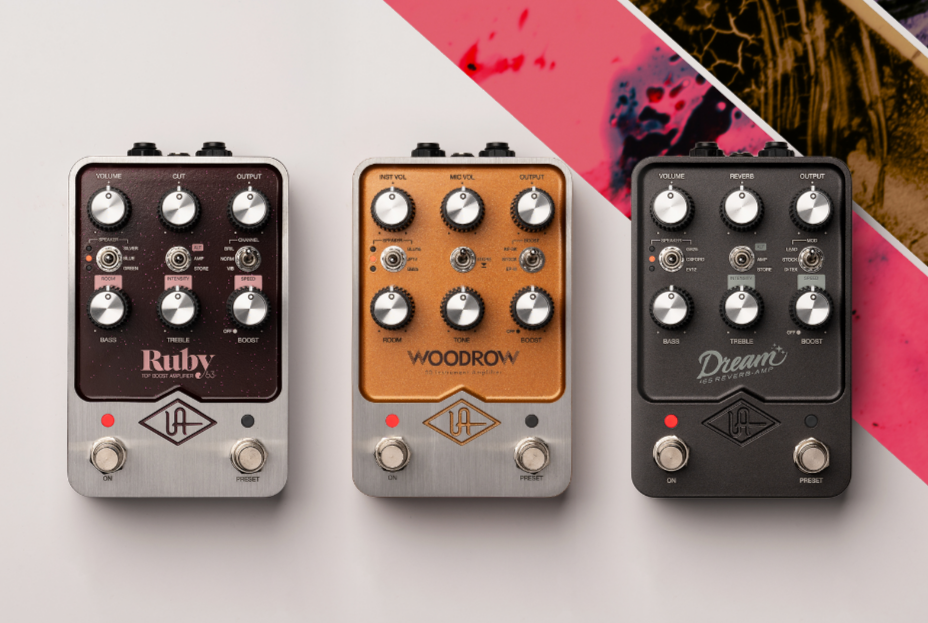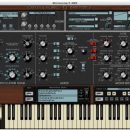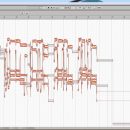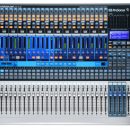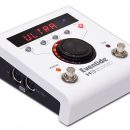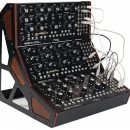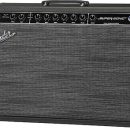Oh Canada! Along with hockey, Molson beer, and cool, fresh air that ends our brutal northern New Jersey summer heat waves, we can also thank Canada for another fine export – Godin guitars! But progression, boutique, USB… those words just don’t belong together in one description, let alone the name of an electric guitar. Get to know this beautiful, Strat-like solid-body guitar, though, and you’ll find the name fits it like a hockey mask, err… we mean glove.
| Category | Value | Rating |
| Features | 20% | |
| Usability | 25% | |
| Sound | 25% | |
| Documentation & Support | 10% | |
| Price | 20% | |
| OVERALL RATING = 3.4 3.6 stars or better: Outstanding, WIHO Award 3 stars or better: Worth considering 2 stars or better: Suited to specific needs 1 star or less: Not recommended |
||
Godin has been making quality guitars since 1972 under many different labels including Norman and Seagull just to name a few. And one constant through the years has been Godin’s excellent reputation among guitar players for building instruments with consistent quality and value.
The Godin Progression Boutique USB is described by Godin themselves as the “next evolution of the single-coil guitar with a USB output and the added crunch of a Godin custom humbucker in the bridge.” Although that seems like a bit of a mouthful, it sums things up nicely.
Godin hasn’t been featured regularly at MusicPlayers.com because we typically hold to the belief that guitars with street prices under $1,000 aren’t at the same level as the instruments traditionally targeted at our serious musician/professional guitarist audience, and most of their guitars fall below our price threshold. In fact, thus far only one other sub-$1,000 guitar has impressed us enough to warrant editorial coverage (an Ibanez RG-series instrument).
But some beliefs are meant to be put to the test on occasion, and the Godin Progression Boutique USB did just that, earning our appreciation and affection for its combination of vintage Strat-like playability and modern Strat tone. The USB interface is a cool extra, but wasn’t even necessary to convince us that this guitar belongs on your short list for alternatives to the American standard.
Features
The Godin Progression Boutique USB is a solid-body Strat-style guitar that sports many of the familiar hallmarks of the style, as well as a few new features that are nothing short of unprecedented.
The guitar is constructed from various materials that no doubt ultimately contribute to its unique tone. The main body is made of Silver Leaf maple while the “wings” are composed of Poplar. Finishing off the body is a highly figured, quilted leaf maple top. Our evaluation model was dressed in a snazzy, black, quilted finish that looked quite nice, if not a tad understated in its elegance. The neck is comprised of both maple and Rock Maple, and sports a 12” radius and typical 25-1/2” scale.
The bridge is an “almost Vintage Fender” style tremolo, set flush to the body with three tension springs and a non-locking Graph Tech TUSQ nut. String trees eschew the typical Fender style in favor of an almost “roller” type and the vintage style tuning machines (as is the bridge) are Godin branded.
 In the electronics department, the Progression Boutique USB has a trio of Godin-designed pickups: a nickel covered humbucker in the bridge and two single coils (GS-2) in the middle and neck positions. For the record, we are not big fans of nickel-covered humbuckers in Strat-style guitars, but in this particular case it blends quite well with the cream-colored single coils and the black quilted finish. It certainly contributes to the vintage vibe in the looks department. A standard five-way toggle switch allows for the usual switching options found on HSS-configured guitars, and the controls are rounded out by a single volume knob and tone pot.
In the electronics department, the Progression Boutique USB has a trio of Godin-designed pickups: a nickel covered humbucker in the bridge and two single coils (GS-2) in the middle and neck positions. For the record, we are not big fans of nickel-covered humbuckers in Strat-style guitars, but in this particular case it blends quite well with the cream-colored single coils and the black quilted finish. It certainly contributes to the vintage vibe in the looks department. A standard five-way toggle switch allows for the usual switching options found on HSS-configured guitars, and the controls are rounded out by a single volume knob and tone pot.
Pickup specs for the tone connoisseurs: the bridge humbucker is an Alnico magnet, 8.5k resistance; the middle GS-2 is a reverse wind, reverse polarity, large Alnico (6.5mm), 5.98k; and the neck is a large Alnico (6.5mm), 5.7k. Not hot by any stretch of the imagination, but have no fear. This guitar will drive your high-gain amp just fine.
One of the features that make this guitar so special is the inclusion of Godin’s H.D.R. Revoicer. At the press of a tiny (and inconspicuous) button, the H.D.R. re-voices and augments the sound of the pickups allowing you to go from passive to active tone.
The other unique feature is the inclusion of a USB port (located next to the input jack) that allows you to plug this guitar direct into your laptop or personal computer – no external audio interface is needed.
Another nice touch: strap locks! The strap pegs can accomodate a standard guitar strap, but they are also compatible with Schaller strap locks if you already have those installed on your straps.
When you are finished rocking out with your new guitar, you can put it to rest in the included Godin branded, padded gig bag, which includes the usual storage compartments, Allen wrenches, and Velcro restraining straps to keep the guitar secure.
Usability
After a quick truss rod adjustment (no doubt necessitated by fluctuating New Jersey temperatures!) we were off and running. First thing we noticed was the overall comfort of the instrument and its playability — it feels like a vintage, well-worn instrument. The frets (although not large by any means) are tall enough to allow the player to get underneath the strings for big bends while still allowing for some fast playing (with that said, we would have preferred a slightly lower action from the factory). It’s fair to say the fretwork overall was impeccable. We noticed zero fret buzz or “fret out,” and no sharp edges anywhere on the neck. This is a silky, smooth neck, and the light satin finish on the back of the neck further contributes to the vibe.
In terms of weight, the Godin is not one of the lighter Strat-style guitars we have played, but it’s certainly not among the heaviest Strats, either. The weight is evenly dispersed and the guitar forms nicely to your body whether standing or sitting. The guitar’s heel is nicely rounded off on the bottom half, allowing easy access to the uppermost region of the neck on the treble side. Unfortunately, the mass is needed somewhere else for strength, and we found the bass side of the neck above the 18th fret harder to access — more so than on any Vintage or Standard Stratocasters we own.
 As we already mentioned, the bridge is not a locking tremolo system, very similar in design to a vintage style Fender tremolo — and we were reminded of this fact after performing a few dive bombs! While we have become a bit spoiled by our Floyd Rose equipped guitars, there was no denying that even under moderate use, the bridge did not return in tune. Also, due to the way it was set up (flush to body) and the overall stiffness, we found subtle vibrato effects difficult to achieve.
As we already mentioned, the bridge is not a locking tremolo system, very similar in design to a vintage style Fender tremolo — and we were reminded of this fact after performing a few dive bombs! While we have become a bit spoiled by our Floyd Rose equipped guitars, there was no denying that even under moderate use, the bridge did not return in tune. Also, due to the way it was set up (flush to body) and the overall stiffness, we found subtle vibrato effects difficult to achieve.
The Volume and Tone pots, as well as the 5-way toggle switch, are located in a spot familiar to anyone who has wielded a Strat-style guitar. What we liked about these Volume and Tone controls was the relatively low friction that allowed them to spin with ease when we decided to tackle Van Halen’s “Cathedral.” The 5-way toggle allowed for the usual and expected pickup combinations, and the H.D.R. Revoicer pushbutton was never selected accidentally. Having ten unique sounds on a Strat-style guitar really adds to the instrument’s versatility!
Not many electric guitars sport USB jacks, but this one does, and our final task was plugging the guitar into our computer — no preamp or audio interface necessary! On our studio’s Apple Macintosh Pro running OS X 10.6.8, the computer automatically recognized the Godin USB interface, and the guitar worked instantly with standalone versions of both IK Multimedia’s AmpliTube and Line 6’s POD Farm 2. However, we were unable to figure out how to use the guitar in our Pro Tools studio as we don’t have any I/O paths set up for devices outside of our mixing console/audio interface. Accessing the guitar from within Pro Tools would have meant some significant changes to our software configuration. Clearly, results will vary based on your application, but we can’t blame the guitar for that specifically.
The real question is, do you really need this feature? A year or two ago, the answer would have been an easy “Yes,” but today, there are multiple simple audio interfaces for the computer such as IK Multimedia’s inexpensive StealthPlug, which is essentially a guitar cable at one end and a USB jack at the other, and given the popularity of home recording, it’s hard to imagine any guitar player seeking to use computer-based guitar apps who doesn’t already have an audio interface that they can connect their guitar to. Fortunately, the Progression Boutique USB is a great guitar even if you never take advantage of this extra feature (and the guitar is available for even less money without the onboard USB option).
Sound
For the evaluation we plugged the Godin Progression Boutique USB into a few different amps: a Rivera R100 combo, a Louis Electric KR12 head with matching 2x12 cabinet, and a 2010 Mesa/Boogie Dual Rectifier.
Our lust for classic humbucking sounds beckoned us to test the bridge pickup first through our Dual Rectifier, dialed in for high gain. First impression – we were a bit underwhelmed. Something just did not seem right, as we got a very weak sound that had us initially wondering if our Mesa had a bad tube! Luckily for us (and our Mesa’s tubes) we discovered that the bridge pickup was set extremely low, almost flush to the body. We raised the pickup height quite a bit, until it balanced out with the volume of the two single coils and Voilà! It was a night-and-day difference, so be sure to note the bridge pickup height when you first sit down with the guitar in case this was a factory setup issue.
Our first (ahem… second) impression of the bridge pickup was that this low to medium output humbucker sounds bright and clear while maintaining a real solid bottom end that remains tight in our high gain amp settings. It also possesses a nice midrange that never got spiky or annoying. Sustained notes decay nicely, sometimes into an almost open vowel-like sound. Despite the Nickel cover and the (sometimes) extreme amounts of gain, we experienced zero issues with microphonics, but were able to coax controlled feedback when desired. Engaging the H.D.R. (which changes the pickups from passive to active) revealed a whole other pleasing and usable tone. With the switch engaged, the tone had much more high-end sparkle as well as some added volume and compression, perfect for metal riffs and single-note soloing.
Intent on exploring some traditional classic rock and clean sounds, we moved over to the Louis Electric KR-12 and Rivera R100. The Louis Electric [Editor’s note: look for an in-depth review in January 2012] is an EL34-based amp that provides the best of two worlds, somewhere between the classic circuits of Marshall and Fender. It was here that we really fell in love with the sound of this guitar. With ease, we were able to coax a convincing Zeppelin vibe as well as tones reminiscent of Kossoff/Free, Cream-era Clapton, or anyone else known for possessing great signature humbucker tone.
Switching over to the single coils, we noticed right off the bat that these certainly were not meant to be vintage spec (i.e. ‘50s era) pickups – these things are powerful! (And that was before we had obtained their technical specs.) However, these pickups succeed where other models calling themselves “Vintage Hot” or “Hot Strat” fail, most notably in the midrange, which never gets too “honky.” The neck pickup in particular provides that classic neck solo sound, great for Ritchie Blackmore or even Yngwie-style lead playing, and the middle pickup pulls off a convincing Hendrix or SRV tone.
One thing we noticed when exploring pickup positions 2 and 4 (a.k.a. the “quack” sounds) was that position 4 was hum cancelling while position 2 was not (and thus a bit noisy for our tastes). Position 2 is the combination of humbucker plus middle (vs. position 4’s middle plus neck single coils). Obviously, the odd number of coils prevents hum cancelling.
The Rivera R100, known for its world class “Fender Twin-esque” clean tone was the final platform for our sound evaluation. With a loud, clean, and reverb-laden tone dialed in, we could really hear this guitar’s natural sound, which, in a word, is wonderful. The bridge pickup is capable of shimmering chords or even a country or rockabilly twang. Rolling off the tone knob a bit can even get you into jazz territory.
The single coils sounded absolutely fabulous through the Rivera: powerful, yet still retaining a signature sound, especially in positions 2 and 4 which was instant Mark Knopfler territory. And while it’s easy to attribute the pop, quack and chime to the pickups solely, we are certain much of this great sound is due to the inherent acoustic properties of the guitar itself and the specific choice of woods used in its construction.
Evaluating the sound via USB posed a different challenge, because your tone is so dependent upon the various modeling guitar apps you want to use. In general, we think the Godin USB solution sounded fine overall, and we were satisfied with the sound we heard on the computer when using this direct connection to the computer. It sounded like a Strat-style guitar, and our modeled guitar rigs sounded similar to their use with traditional analog connections through recording interfaces.
Documentation and Product Support
This isn’t the first time we have said this (and it certainly won’t be the last), but, “It’s a guitar. Whaddya’ need an owner’s manual for?” With that said though, it would have been nice to have something, like information regarding truss rod adjustment, care, maintenance, and maybe a summary of the instrument’s specs for future reference. Our Godin came packed with a QC checklist, a chart comparing a bone nut to TUSQ, and some advertisements.
Price
The Godin Progression Boutique USB (MSRP $1,195) has a street price just under $1,000, and you would be hard pressed to find a similarly priced Strat-style guitar with this level of quality materials and exceptional build. Compared with an American-made, HSS-configured guitar of similar specs (minus the active/passive control and USB connectivity), the Godin Progression Boutique USB is quite the deal indeed.
Contact Information
Godin Guitars
www.godinguitars.com
Evaluation Short-List
- Fender American Standard Strat HSS
- Music Man Silhouette Special HSS Trem
- Charvel San Dimas Style 1 HS
- G&L Legacy Deluxe

